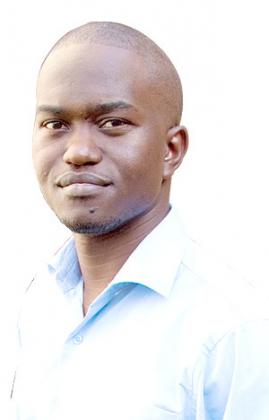When in Rome, do as the Romans do. That is one of the most overused adages one can think of. It even has several versions in other languages like the one about eating dogs if you move to a place where dog meat is a delicacy.


When in Rome, do as the Romans do. That is one of the most overused adages one can think of. It even has several versions in other languages like the one about eating dogs if you move to a place where dog meat is a delicacy.
This adage also applies in some business situations, as I found out a few weeks back. Midway through the World Cup season, I wanted to renew subscription for my pay TV service at a branch in Nyabugogo, only to find the place closed. I was in a dilemma and had to think of a solution right away, especially as the game between Chile and Brazil was a few minutes away.
I decided to rush to their office at UTC Building hoping they close much later or that it was even a 24-hour outlet.
I was in for a shocker; the place, too, was closed. My day was saved by a gentleman who vends airtime strategically outside the outlet. He had asked if I had come to renew my subscription on reading my facial reaction after finding the retailer’s office closed. He fished out a subscription card for me; I paid and rushed back home to catch the remainder of the game.
This experience got me thinking about the behaviour of businesses in regards to their location. I know many business owners still follow the rigid orthodox way of ‘office hours’. What they forget is that money can be made at any time, and that a businessperson must be ready to receive at such a time.
The UCT Building has a 24-hour supermarket (Nakumatt) as its anchor business. Because of this, other businesses occupying the building have gradually embraced the 24-hour concept. There is a restaurant that serves hot meals 24 hours a day. There is also an MTN Centre that operates day and night.
For those seeking medicine, there is a pharmacy that stays open around the clock, while other shops that sell clothes, plus a beauty salon are known to stay open till around 10pm.
What all this shows is that the behaviour of the anchor business, in this case the supermarket, has compelled others to remain open for longer hours to tap into the human traffic that comes to the supermarket because of its ‘endless’ hours of operation.
When one is out late and need to buy something, they immediately drive to the UTC-based supermarket, but as they walk in they pass by the restaurant; if they are hungry they will get something to eat and may also pick up some airtime on their way out as they walk by the MTN shop.
This behaviour is not just reserved for supermarkets. Even in rural areas, when it is a market day that draws people from the nearby villages, all other businesses, be they restaurants, bars, barber shops or transporters, will stay around hoping to ‘partake of the windfall’ created by the market day.
In such situations, serious businesspeople do not live by rigid office hours of 8-5 or 6pm. They stay around for as long as there are still people around and money to be made. If you are the kind who wants to be home at exactly 6:00pm and are always rushing to close you business, then maybe you should hire someone who can stay and wait for the last customer.
As Kigali, in particular, and Rwanda in general grow, businesses have to adjust their operations to suit this growth. If you were closing your shop at 5pm eight years ago, you should now be closing at 7 or 8pm because I am sure the population and activities around your area must have increased over time.
Business demands that one studies the behaviour of customers regularly and adjusts accordingly. If there security like is the case in Rwanda, and people stay out long, then you should be there to serve them. The key rule to remember is never to leave money behind by closing early and shutting out customers.
Blog: www.ssenyonga.wordpress.com
Twitter: @ssojo81


